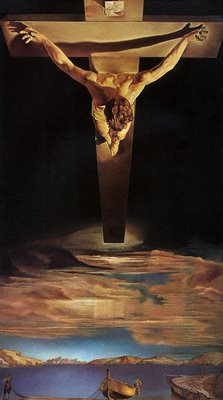O Tannenbaum, o Tannenbaum,
wie treu sind deine Blätter!
Du grünst nicht nur zur Sommerzeit,
Nein auch im Winter, wenn es schneit.
O Tannenbaum, o Tannenbaum,
wie treu sind deine Blätter!
O Tannenbaum, o Tannenbaum!
Du kannst mir sehr gefallen!
Wie oft hat nicht zur Weihnachtszeit
Ein Baum von dir mich hoch erfreut!
O Tannenbaum, o Tannenbaum!
Du kannst mir sehr gefallen!
O Tannenbaum, o Tannenbaum!
Dein Kleid will mich was lehren:
Die Hoffnung und Beständigkeit
Gibt Trost und Kraft zu jeder Zeit.
O Tannenbaum, o Tannenbaum!
Das soll dein Kleid mich lehren.
(I think one is supposed to sing this on the Eve, after the tree is completely dressed; but it's 7:20 am, and caffeine is coursing through my nervous system with greater voltage than the lights on mich tannenbaum...)
 (Not my tree, but Fr. Jim Tucker's "Advent Shrub.")
(Not my tree, but Fr. Jim Tucker's "Advent Shrub.")
Oh, and while I'm on the subject, I'm interested in any theological reflection on the Christmas Tree. Original is welcome, but I'd enjoy it if anyone could cite something significant, something really, well, traditional.
I'd point out that the Tree is a hugely important theological reality in the economy of salvation. Recall that the Lord God planted a Garden, and in the midst of it, he planted a Tree: the Tree of Life. Alas, humanity focused on another tree, that of Knowledge of Good and Bad -- so much so, that to Adam and Eve's mind, this other tree was the center of the Garden (and the one humanity still remembers -- isn't that fascinating?).
Christ, whose birth this is of course, came to embrace the tree of death, and transform it into the Tree of Life -- for us. Hence, when (in Scripture), we return at last to the Garden, there is but one Tree, bearing fruit 12 months a year, "for the healing of the nations" (Rev. 22:2).
Hence -- on top of the linkage between the Christmas tree and our patron here, St. Boniface -- I would say emphatically, it is a religious symbol. Whether the ornaments signify the fruit of the Tree (by the way: did you know what some early ornaments were? Paper roses and -- wait for it -- apples!), or if you place gifts on the tree (a nice pneumatological image, don't you think?), by all means, see in the tree, in the midst of your house and family, the Tree God planted in the midst of the Garden.
 The Christmas Tree
The Christmas Tree

2 comments:
Merry Christmas, Father. Great postings recently!
I have to admit, I exiled you from my favorites list just last week. A guy can only read so much, ya know!
But with the Tannenbaum Christmas post (it should be "meinen" Tannenbaum, by the way) and the wonderful funeral homily, you made it back.
For years I have been struggling with the meaning of the statement that we had been created in the "image and likeness" of God.
The only logical conclusion of that statement is that we also are gods, although finite gods, maybe like Greek gods, with lots of faults and weaknesses.
But I've always been afraid to say that, fearing charges of heresy and of pride and presumption.
I'm more certain now after reading your homily that we were all indeed created as gods in the image and likeness of the One True God and that Heaven will be, minus those faults and weaknesses, eternity in His presence.
And I'm sure that the homily was of great comfort to the family and friends of Paul.
Ray Marshall
Minneapolis
Well, I can't accuse you of heresy, insofar as many of the saints have said the following down the ages:
"God became man that men might become God."
This reflects Scripture, insofar as St. Paul describes us as adopted, sharing the Son's sonship: "joint-heirs with Christ" (Romans 8), and St. Peter describes us as "partakers of divine nature."
Of course, we "become God" not by right, or by original nature, but by incorporation into God, into the life of the Trinity.
If you want to speak of us as "gods," I think you can do so, provided that is understood in participation in the mystery of the Triune God.
Thank you, by the way, for your kind words; and I'm honored to be rising on your hit parade!
Post a Comment